
Hanoi's Old French Quarter
- on Aug 22, 2020 By: BN
Not far away from Hoan Kiem Lake, you can discover the old French Quarter of Hanoi, which houses some of the most beautiful vestiges of the French presence. A unique quarter that stands out with the rest of the capital where the old and the new blend harmoniously, diffusing a subtle charm to the ancient capital of Vietnam.
History of Hanoi's Old French Quarter
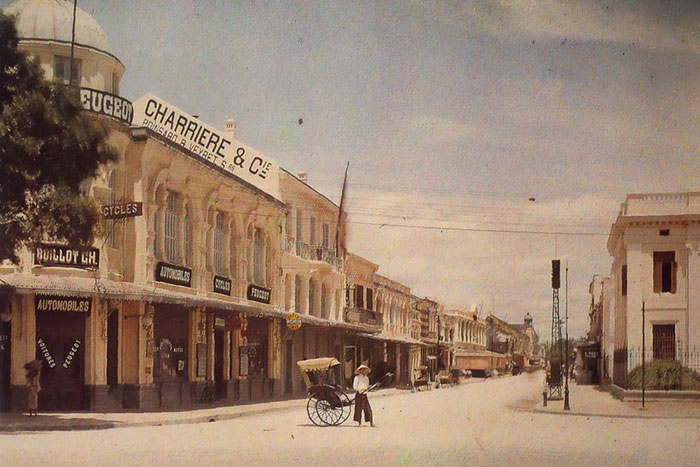
The arrival of the French in Hanoi in 1873 marked the beginning of a new town planning, the pride of the French colonial domain. This triumphant architecture, the pivot of French governance in Indochina, wanted to concretise the colonial power in stone. In order to welcome the first settlers, the colonial authorities decided to undertake major urban development works to the south and southeast of Hoan Kiem Lake based on the concept of a garden city, enhancing the many lakes that mark the Hanoi landscape identity. Perpendicular streets were then arranged contrasting with the intertwined alleys of the old shopping district. Villas and administrative buildings were built and the colonial authorities destroyed a very old Buddhist pagoda dating from the 11th century to build Saint Joseph's cathedral in 1886.
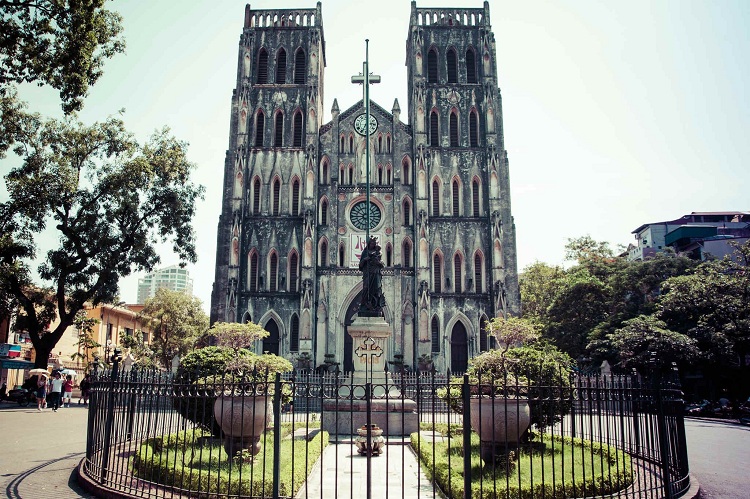
This cathedral was the symbol of all French power and colonial contempt. Through all these imposing achievements, it has shown its lasting colonial presence in Vietnam. From 1900 to 1920, the people saw the emergence of a French quarter with a strict imposition of French architecture. An opera house, department stores, hotels, cafes, cinemas and restaurants brought Paris to the capital of French Indochina.
Department stores in Paul Bert Street
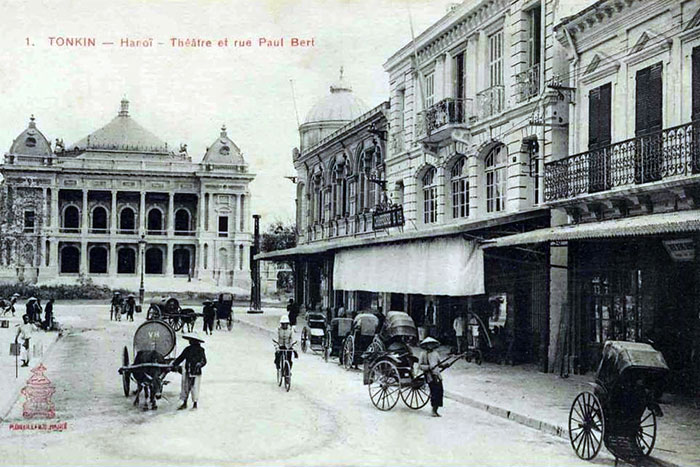
Paul Bert Street, now known as Trang Tien Street, was the French Quarter's shopping route from Hoan Kiem Lake to Hanoi Opera House. Department stores had settled there, such as Chaffanjon, Poinsard and Veyret, the Counter of the Far East or the Reunited Department Stores. The French but also Vietnamese bourgeoisie liked to come and shop there. Paul Bert Street was crowded with cabs, cars and rickshaws. It was a very popular place to walk and visitors could continue on the edges of the poetic Hoan Kiem Lake. Even today, Trang Tien Street remains one of the capital's most commercial streets, where boutiques compete in elegance.
Hanoi Opera House, a major piece of Hanoi's Old French Quarter
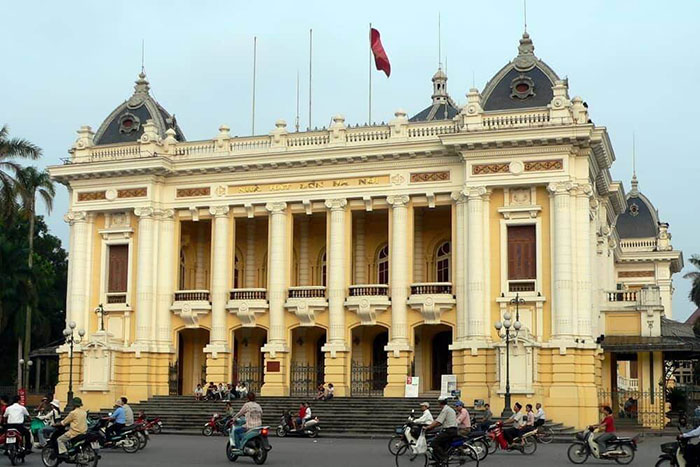
Located in the heart of the capital, Hanoi Opera House was, at the time, the eminent representative of French architecture. Inspired by the architecture of the Garnier Opera House in Paris, the Hanoi Opera House opened in 1911 after ten years of work. This centrepiece of Hanoi's Old French Quarter stands out for its colonial splendour and timeless elegance. Every Monday and Friday from 10:30 a.m. to 12 noon, this famous place opens its doors to visitors for a guided tour. This is an opportunity to admire the interior architecture in the neo-renaissance style and to discover the performance hall, a real beauty based on the model of so-called “Italian” theatres. During this visit, you will discover that the Hanoi Opera House is a historical hotspot that hosted major events in the country, especially that of August 17, 1945, when a public meeting was organised to present the Independence Front of Vietnam, the Vietminh.
You should find out about the current program while in Hanoi to attend one of Hanoi Opera's many cultural events.
Other emblems of the old quarter
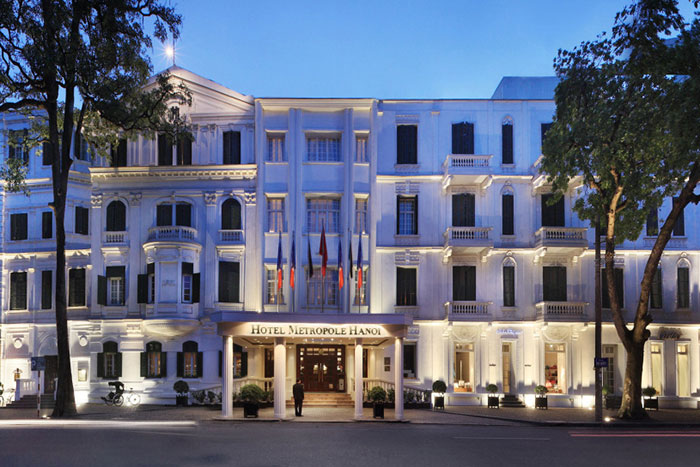
+ The Sofitel Legend Metropole hotel was built in 1901. This legendary hotel is the place where the history of Indochina pulsates and exudes a colonial luxury with unique charm in the heart of Hanoi. Known as a great lady of Southeast Asia, the Sofitel Legend Metropole in Hanoi invites you to discover its former splendour and its timeless elegance. You will appreciate its immaculate white facade, its two blue Citroën Traction Avants parked in front of the establishment and its very Parisian terrace. Since its creation, it has risen to the top of the favourite vacation spots of political and artistic persons.
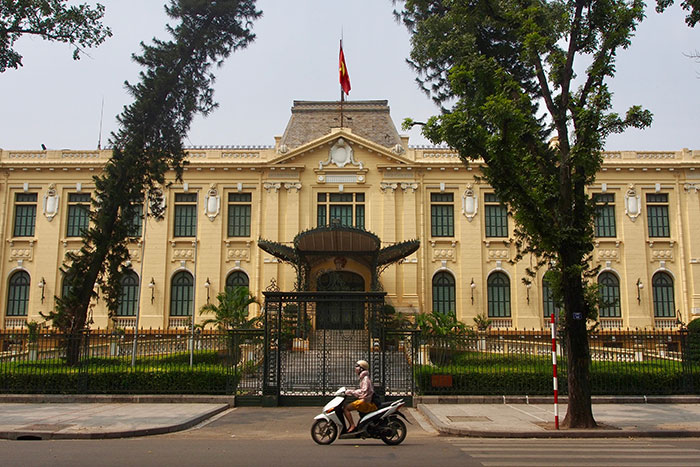
+ Almost opposite, you can admire the former Tonkin Superior Residence built in 1919 by the architect Adolphe Bussy. A building of rare elegance which is distinguished by its imposing entrance gate, the access ramp, the grand staircase and the superb glass marquee above. The style is reminiscent of a mansion from the Second Empire. The Tonkin Superior Residence has become a guest house for the Vietnamese government.
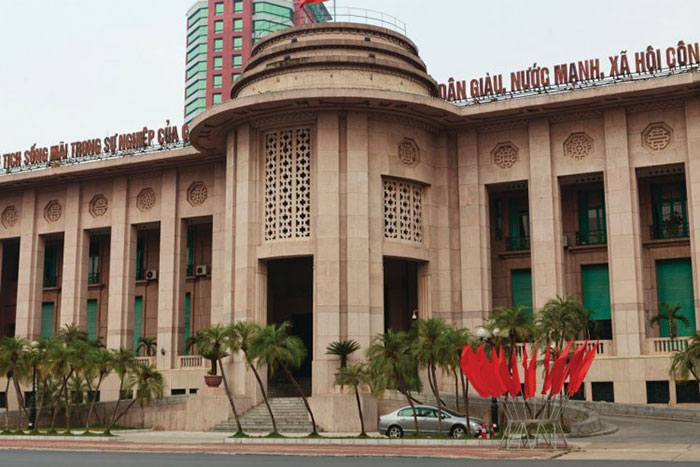
+ A few metres away is the old Bank of Indochina in Tonkin. Built in 1930 by Georges-André Found, this imposing building combined Art Deco motifs and Indochinese styles and is one of the most astonishing buildings of the colonial style.
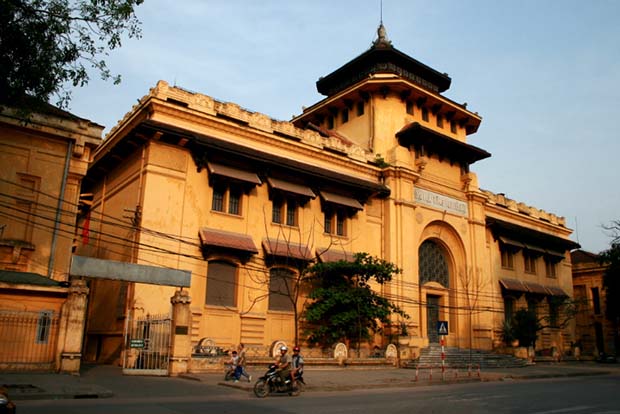
+ The former University of Indochina, which has become the National University of Vietnam, is another iconic building in Hanoi's former French Quarter. Built by the French on May 16, 1906, in Hanoi, the first university institution in Vietnam trained in almost all the fields necessary for the development of the country: medicine, law, fine arts, commerce, agriculture and forestry, public works and pedagogy. Until 1945, the higher education system in Indochina was very comprehensive and very well organized and Hanoi became an educational centre throughout the French colonial empire. The University of Indochina was the prime example of the Indochinese architectural movement, investigated by the architect Ernest Hébrard.
Related articles:
>> Imperial Citadel of Thang Long, the thousand-year-old face of Hanoi
Comment
Other Blog
Categories
Latest News
on 27 Apr, 2023      
on 15 Apr, 2023      
on 28 Mar, 2023      
 Español
Español Français
Français



















F
on Jan 3, 2024Igor Mozetic
on Apr 8, 2023Ira Beale
on Feb 10, 2023Phạm Phú Toàn
on Jan 28, 2023Max Stover
on Jan 11, 2023